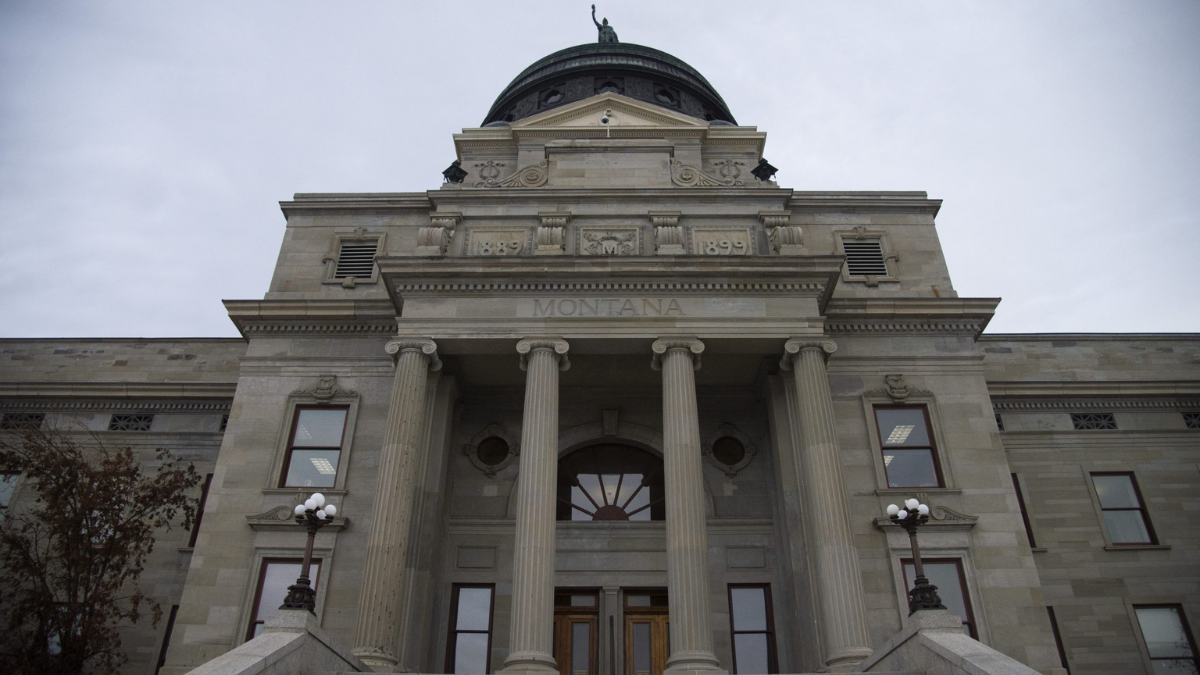Disability Rights Montana and the Montana Quality Education Coalition, two organizations that advocate for public school students, filed a lawsuit Tuesday challenging the constitutionality of a new state law that grants parents of students with special needs direct access to state education funding.
The Republican-sponsored law, passed on largely party lines in the 2023 Legislature, creates a system of education savings accounts parents can opt into to receive state-funded reimbursements for special education services obtained outside of Montana’s public school system. The plaintiffs’ complaint alleges that in doing so, House Bill 393 will “shake out Montana’s public education piggy bank” in violation of several provisions of the state Constitution, redirecting taxpayer support to private institutions in districts with participating families at the expense of students with disabilities and special educational needs who continue to rely on public school programs.
“The bottom line is that a student, if they’re in a district that is fiscally impacted by this bill, loses services and doesn’t get what they need to progress in their education, because how else does the district make up the difference?” Tal Goldin, director of advocacy for Disability Rights Montana, told Montana Free Press Tuesday.
Disability Rights Montana is a federally mandated nonprofit charged with enforcing state and federal protections for individuals with disabilities. The Montana Quality Education Coalition is a statewide education advocacy association representing more than 100 school districts throughout Montana. Both are represented in the case by the Helena-based nonprofit Upper Seven Law, with Goldin also acting as an attorney for Disability Rights Montana. The lawsuit was filed in Lewis and Clark County District Court and lists Gov. Greg Gianforte and state Superintendent of Public Instruction Elsie Arntzen as defendants.
Asked for a response from Gianforte to the lawsuit, spokesperson Kaitlin Price emailed the following statement:
“While the governor’s office generally doesn’t comment on active litigation, the governor believes each child is unique and deserves access to the best education possible to meet his or her individual needs, especially for the more than 18,000 students in Montana who require specialized education services.”
Arntzen issued the following statement Tuesday through spokesperson Brian O’Leary:
“As the daughter of a special education teacher, I have always supported children of all abilities. Local accountability starts with the family. Montana parents know the educational needs of their students better than the government. The special education savings account has specific parameters for the use of state dollars and a rigorous accountability process. Our children deserve the best education that they can receive. HB 393 aims to provide this by putting Montana students first.”
RELATED
Montana prepares to launch new education savings accounts
Montana’s Office of Public Instruction is preparing for the launch of a new program using state education funds to reimburse families for special needs services outside the public schools.
HB 393 emerged as a key victory for in-state and national school choice advocates last session. The law allows students with disabilities defined in the federal Individuals with Disabilities Education Act to participate in an education savings account program that enables their parents to obtain reimbursements from the state for tutoring, educational therapy, online programs and other private services. To fund the accounts, HB 393 directs districts to return state dollars associated with participating students to the Office of Public Instruction. Those dollars include a per-pupil state payment and a portion of funding flagged for Indian Education for All programming, both of which otherwise flow directly to the general funds of local school districts. HB 393 also releases districts from any legal obligation to provide education services to a student whose family chooses to participate in the program.
Proponents hailed HB 393, sponsored by Rep. Sue Vinton, R-Billings, as giving students and parents more freedom to pursue educational resources that best suit their needs. Montana is now one of 13 states to adopt education savings account laws, and OPI has already begun to implement the new law ahead of the 2024-25 school year. During the 2023 session, legislative staff reported that 21,127 students statewide would qualify for the program, equating to a transfer of roughly $140 million into savings accounts if all eligible students chose to participate. Supporters of the bill argued that actual participation rates are likely to be much lower.
The plaintiffs are now presenting in court a key criticism raised by HB 393’s opponents last year: that the education savings accounts pull money directly from local school district general funds without reducing the overall costs of special education services for students who opt to remain in public schools. Goldin further noted that there is no statutory cap on the amount of state funding that could be redirected to the program. The complaint claims the law consequently threatens to undermine the Montana Constitution’s guarantee of educational equality, particularly in rural districts with smaller student populations, leaner budgets and limited ability to leverage local taxpayers for additional dollars. MQEC Executive Director Doug Reisig told MTFP Tuesday he believes the impacts of HB 393 on public schools are “financially unfathomable.”
“Obviously the financial picture is important,” Reisig continued, “but that educational opportunity, the diminishing of the educational opportunity for the kids that are remaining in the public school with the redirection of those limited funds, is something we just can’t tolerate.”
The complaint also outlines specific harms each plaintiff contends it will experience under HB 393. For MQEC, that alleged harm comes in the form of increased investments in work advocating for adequate funding for impacted schools. For Disability Rights Montana, the alleged harm is that HB 393 compromises its core mission of protecting and advocating for the rights of students with disabilities across Montana — a mission Goldin said also necessitated the nonprofit’s role in challenging the law.
“Those rights go away under this bill,” Goldin said. “When a parent chooses to participate in this program, they are required by law to waive all of these rights, and it’s a really broad waiver.”
The plaintiffs requested that the court issue a judgment declaring HB 393 unconstitutional, and that it immediately bar the state from enforcing any aspect of the new law.
House Bill 393 is the second successful school choice proposal from the 2023 Legislature to draw a legal challenge. Last year, MQEC and several other plaintiffs filed a separate lawsuit against one of Montana’s two new charter school laws, House Bill 562, which was also sponsored by Vinton. That bill was partially blocked in September by a Lewis and Clark County District Court judge who barred a new state commission from reviewing or approving any applications for what HB 562 calls “community choice” schools until the case is resolved.
LATEST STORIES
The race to be the partisan clerk of Montana’s nonpartisan Supreme Court
The clerk of the Montana Supreme Court is a unique position. Unlike the actual justiceships on the high court, the clerkship is partisan. And unlike almost every other state supreme court clerk in the country, Montana’s is elected.
Second Montana ski resort looks to turn wastewater into powder
More than a dozen ski areas in eight states, plus some in Canada, Switzerland and Australia, use wastewater to make powder. This past winter, the Yellowstone Club near Big Sky became the first in Montana to turn what was once sewage into snow.
Republican lawmakers mount three separate pushes for special sessions
A trio of special session requests from Republican lawmakers each touch on election-year issues, but lawmakers have historically had little success calling themselves into a special session.


